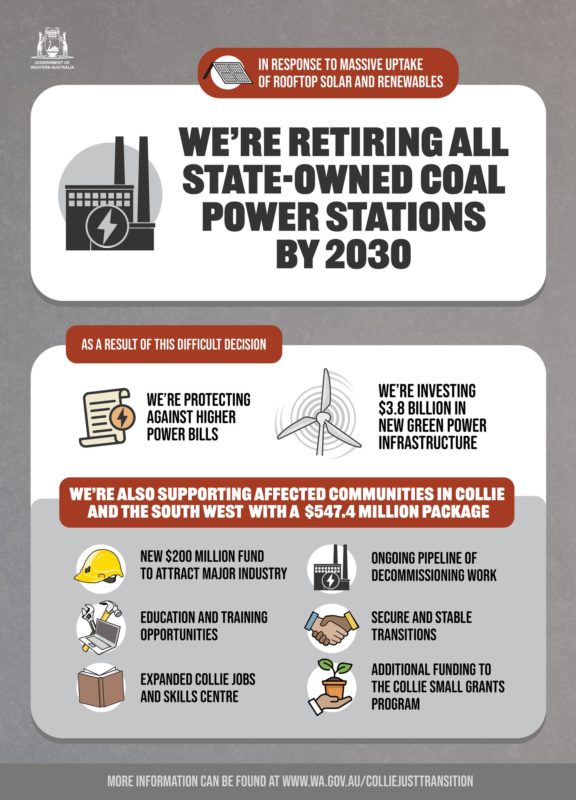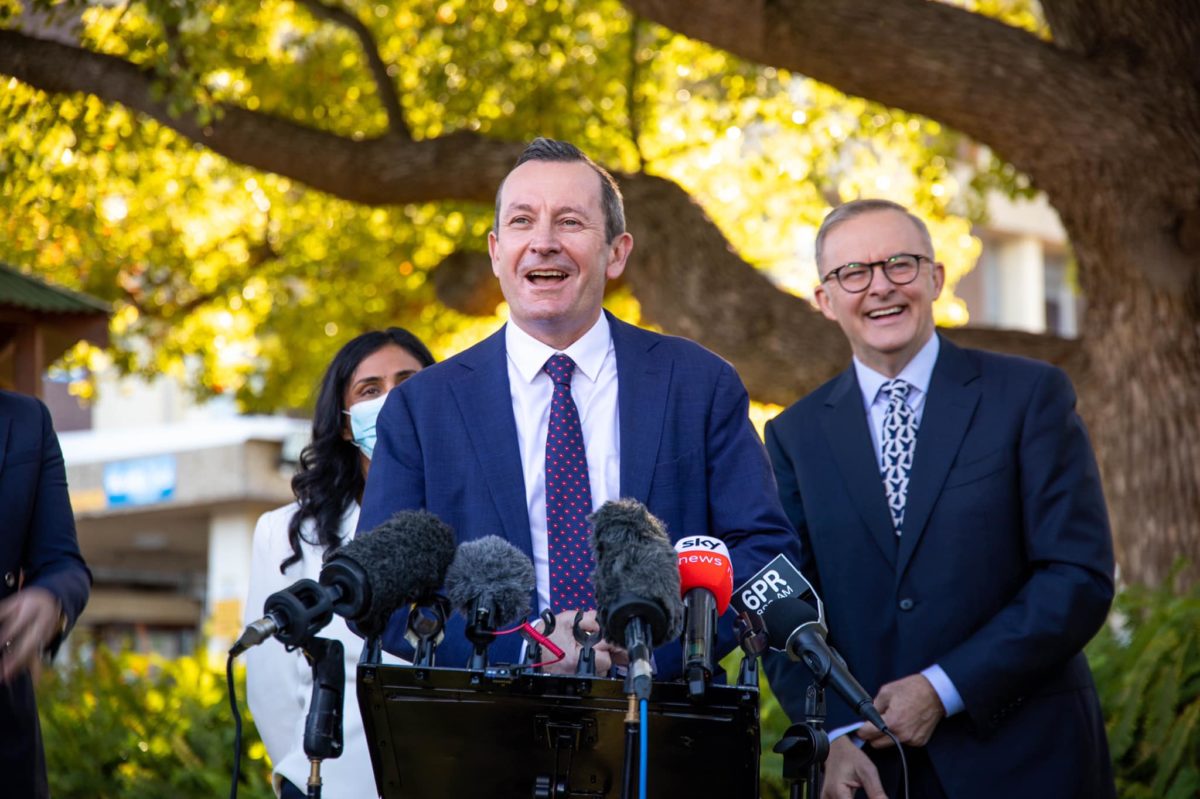Western Australian (WA) government-owned Synergy will close its two remaining coal power plants by 2029 after WA Premier Mark McGowan announced a $662 million boost for coal-town Collie’s transition to new and emerging industry, and an additional $3.8 billion for new green power infrastructure around the state.
McGowan said the $3.8 billion would be invested to 2030 “in new renewable generation and storage, mostly wind and batteries, to ensure WA has affordable and reliable power into the future.”
Collie, approximately 200km south of Perth, has been powering WA with its two coal mines since the 1880s. The decision will see the 854 MW Muja plant shuttered by October 2029, and the 340 MW Collie plant retired two years earlier, in October 2027.
The WA government had already committed more than $115 million towards the transition of Collie’s economy, including $1 million in funding for the first phase of a feasibility study into a 600-800MWh battery and green hydrogen industrial hub in the coal town.
“My Government is absolutely committed to supporting Collie’s economic diversification to create new industrial and blue-collar jobs in town,” said McGowan. “Through our $622 million Collie Transition Package we will provide opportunities for workers and the community impacted by the retirement of State-owned coal power stations.”

Why now?
The McGowan government did not hesitate to give its reasons for putting a deadline on coal in the state. In a statement, the government said the retirement of Collie’s coal-fired power stations is “in response to WA’s overwhelming uptake of rooftop solar and renewables.”
In a post to Facebook, McGowan said: “We know that the economics of coal-fired power have been coming under pressure for some time now. With the rapid uptake of rooftop solar, it’s been cutting into the viability of coal – and that pressure has been growing.”
McGowan added that if the State continued with “business as usual,” it would “lead to around $3 billion of losses by the end of the decade.”
Moreover, the ABC reported that McGowan predicted household power bills could rise by around $1,200 a year by 2030 if action to exit unviable coal power wasn’t taken now.
Part of the transition package includes a $200 million Collie Industrial Transition Fund aimed to attract major projects and new industries to the town, particularly targetting potential opportunities in battery manufacturing, wind turbine manufacturing, hydrogen, green cement and minerals processing.
“The package will work to attract new industries and create jobs, provide grants for local businesses, and support new training and career pathways for workers,” said McGowan.
Energy Minister Bill Johnston seconded the Premier, saying Collie’s “location, existing power infrastructure and skilled local workforce means it will remain central to the State’s energy generation efforts.”
“We are beginning work to roll out billions in new investment for the South West Interconnected System (SWIS),” continued Johnston, who described the transition to the state’s grid away from coal to be “the biggest job-creating infrastructure program in WA since Metronet.”
Collie-Preston MLA Jodie Hanns said the additional funding from the McGowan Government ensured “every effort is being made to secure our region’s future. Collie has a long future ahead as an industrial town – including exciting opportunities in a number of new and emerging industries – ensuring there will continue to be high-quality local jobs in the region for years to come.”
After the closure of the two state-owned coal-fired power stations, the only remaining coal-fired power plant operating in WA will be the privately owned Bluewaters generator, also near Collie.
Just how long the Bluewaters plant can hold out against the rise of renewables is yet to be seen, but the plant has been in financial strife for some time.
About the decision to withdraw from coal and to support the industry of the coal industry’s workforce, McGowan concluded: “It’s what’s right. It’s what’s just.”
This content is protected by copyright and may not be reused. If you want to cooperate with us and would like to reuse some of our content, please contact: editors@pv-magazine.com.









4 comments
By submitting this form you agree to pv magazine using your data for the purposes of publishing your comment.
Your personal data will only be disclosed or otherwise transmitted to third parties for the purposes of spam filtering or if this is necessary for technical maintenance of the website. Any other transfer to third parties will not take place unless this is justified on the basis of applicable data protection regulations or if pv magazine is legally obliged to do so.
You may revoke this consent at any time with effect for the future, in which case your personal data will be deleted immediately. Otherwise, your data will be deleted if pv magazine has processed your request or the purpose of data storage is fulfilled.
Further information on data privacy can be found in our Data Protection Policy.